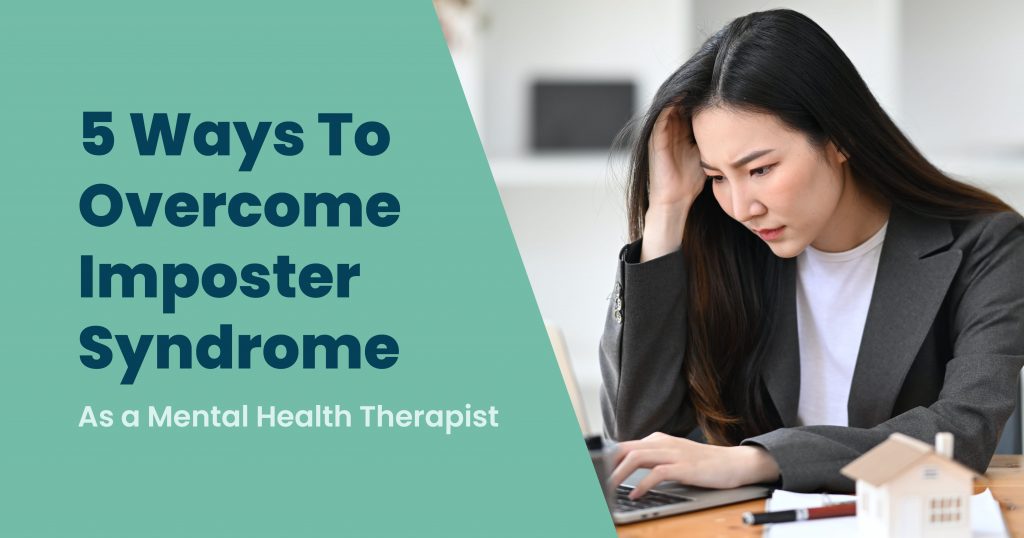Feeling like an imposter in your profession is a struggle that many mental health therapists face. It’s easy to doubt your knowledge and expertise when you’re expected to have a high level of knowledge and expertise in your profession.
Despite having so many mindset tools ourselves, therapists are no exception to the rule.
Imposter syndrome can be a significant source of stress and self-doubt, and it can impact your ability to feel confident and effective in your work.
Here are some strategies that therapists, like yourself, can use to deal with imposter syndrome:
- Challenge your thoughts and beliefs:
Once you have identified the thoughts and beliefs that contribute to imposter syndrome, it’s important to challenge them. Look for evidence to support or refute these thoughts and beliefs. For example, if you believe that you are not intelligent enough to be a therapist, consider all the ways in which you have demonstrated competency in your education and training.
- Remember your training:
It’s important to remember all the hard work and dedication you have put into becoming a therapist when dealing with imposter syndrome. Your education and training are clear indications of your intelligence and capabilities as a therapist. Reflecting on your education, supervised practice, and professional exam can help to remind you of the knowledge and skills you have gained and can provide evidence to refute any negative thoughts or beliefs you may have about your competence.
- Remind yourself of your success:
Reminding yourself of your accomplishments and strengths can be an effective way to counteract feelings of imposter syndrome and self-doubt. It can be helpful to keep a record of compliments you’ve received and professional successes you’ve had so that you can easily refer back to them when you’re feeling uncertain or insecure. Also, by consciously calling attention to your strengths, you’ll start to counteract some of your self-doubts.
- Stop comparing yourself to others:
It’s common to compare ourselves to others, especially when it comes to our careers. However, this can be harmful to our self-esteem and confidence, especially when we compare our most challenging moments to another person’s best moments. It’s important to remember that people often present their best selves to the world, and we may only see a part of their experience.
- Seek support:
It can be helpful to talk to a trusted colleague or friend about your feelings about imposter syndrome. They may be able to provide you with perspective and reassurance, plus shine a light on your strengths and accomplishments.
Remember that imposter syndrome is a common experience, and it does not reflect your true abilities or worth as a therapist. By using these strategies, you can work to overcome imposter syndrome and feel more confident and effective in your work.
